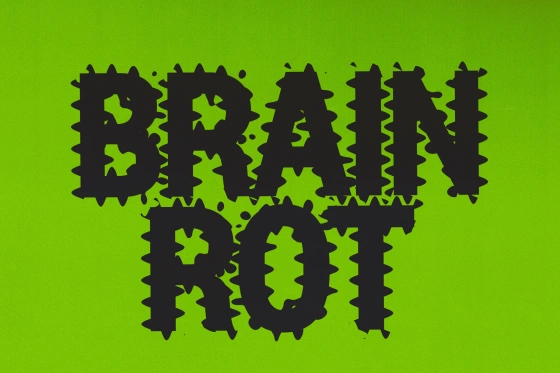(LOOTPRESS) – In a reflection of the internet’s growing influence on language, Merriam-Webster has chosen “brainrot” as its 2024 Word of the Year, citing its widespread usage across social media platforms and its evolution into a cultural phenomenon.
Originally a slang term used to describe obsessive thoughts about a particular topic—often tied to fandoms, memes, or hyperfixations—“brainrot” has gained traction as a way to articulate the pervasive and often humorous ways modern life occupies our minds.
From Internet Niche to Mainstream Recognition
“Brainrot” has its roots in online communities, where users often describe their intense preoccupations with phrases like, ‘I have brainrot over this show!’ or ‘This game has completely rotted my brain.’ Over time, the term expanded beyond its fandom origins to describe anything that captivates or overwhelms someone’s thoughts, often in a playful or ironic manner.
Peter Sokolowski, editor-at-large at Merriam-Webster, explained the decision:
“The word ‘brainrot’ captures the zeitgeist of how people engage with media, ideas, and even current events in the digital age. It’s self-aware, humorous, and a little critical—perfectly reflecting the tone of communication today.”
A Snapshot of Culture
The rise of “brainrot” also mirrors the growing dialogue about the internet’s role in shaping our thoughts and habits. Psychologists and cultural commentators have noted that the term humorously encapsulates a universal experience of modern life: becoming consumed by a particular idea, trend, or pastime.
Social media trends in 2024 saw “brainrot” used to describe everything from binge-watching TV shows to endlessly scrolling TikTok. Hashtags like #Brainrot and #ThisIsMyBrainrot collectively garnered billions of views on platforms like Twitter and Instagram.
Not Without Critics
While many celebrate the term’s inclusion, some critics argue that “brainrot” reflects the trivialization of deeper issues such as digital addiction or mental health struggles.
Cultural analyst Dr. Angela Trent commented:
“The term is undeniably playful, but it also speaks to a larger societal issue about how we consume media and ideas. It’s worth considering what this says about our culture and the limits of self-awareness.”
Previous Words of the Year
Merriam-Webster’s Word of the Year often serves as a cultural time capsule. Recent winners include:
- 2023: Authenticity
- 2022: Gaslighting
- 2021: Vaccine
“Brainrot” stands out as a reflection of the internet’s growing influence on shaping modern language and the way people articulate their experiences in the digital world.
Looking Ahead
As Merriam-Webster continues to monitor language trends, words like “brainrot” demonstrate the dynamism of language and its ability to capture the essence of an era. Whether it’s used to describe fandom obsessions, social media rabbit holes, or hyperfixations, “brainrot” is here to stay—at least until the next big trend takes over our collective minds.










